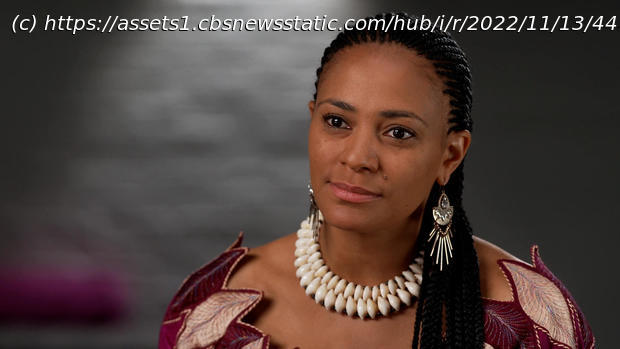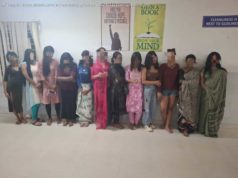Lesley Stahl reports on the kora, a centuries-old West African instrument, and the groundbreaking woman who’s mastered it, Sona Jobarteh.
This is an updated version of a story first published on Dec. 25, 2022. The original video can be viewed here.
Tonight we want to introduce you to a musician named Sona Jobarteh, who introduced us to the beautiful sound and story of a centuries-old instrument called the kora. It’s a string instrument from West Africa, part of a musical tradition that dates back to a 13th-century empire, and has been passed down strictly from father to son, man to man in a special set of families ever since. As we first reported last fall, Sona Jobarteh was born into one of those families, called griots.. the daughter of a Gambian father and a British mother. After hundreds of years of men, she is the first woman to master the kora. In her performances around the world — and in her work off-stage — she says she is keeping tradition alive.. through the very act of breaking it.
Take a listen, as we did, to Sona Jobarteh as she plays the kora. With its 21 strings, played by just four fingers, two on each hand, it has a sound both foreign and familiar.
Lesley Stahl: To me, it’s like a harp. What do you compare it to?
Sona Jobarteh: I don’t actually compare it to anything because it’s normal for me, right? I compare other things to the kora.
The song Sona played for us, called „Jarabi,“ is a traditional love song sung in the Mandinka language. The tradition goes back to the 1200s, when a kingdom called the Mali Empire reigned over a large swath of West Africa, the territory of several modern-day countries. The musicians and storytellers in the empire were men called griots, who counseled kings, resolved conflicts and passed the legends down orally through the centuries. Women in griot families were singers, but it was only men who were allowed to play the instruments.
That is, until Sona Jobarteh. At 39, she has become one of the foremost kora players in the world, performing with her band across Europe, West Africa, and here in the United States, as we saw in one packed theater outside Boston.
Sona Jobarteh: This is music when you hear it, it still, to this day, carries this feeling of the empire at its– at its greatest. You get that feeling of royalty, you get that feeling of, you know, something that you’re so proud about.
Lesley Stahl: What I think about with you is that you have broken tradition.
Sona Jobarteh: It’s not the way I see myself, mainly because of the fact of — believing that tradition has to evolve. Traditions are not stagnant. They are things that grow with humanity, with socie– society, and they always have. At one time, this instrument was not around. And then it became invented and it became something modern. And yet, now it’s considered traditional. So in terms of me being female, this is a very central and important adaptation the tradition must take in order to be able to be relevant to our new society.
Sona Jobarteh comes to the griot tradition as both insider and outsider. Her mother is a British artist. Her father, the son of a legendary Gambian kora player whose griot family pedigree traces back to the 13th century. Though her parents‘ relationship didn’t last, Sona grew up in both worlds, the U.K. and her grandfather’s family compound in the Gambia, where she says her grandmother urged her to embrace her griot heritage which, as a girl, meant singing.
Sona Jobarteh: She used to keep telling me, you know, „You have to sing.“ And I never wanted to sing. I hated singing with a passion.
Lesley Stahl: Why? You have the perfect voice.
Sona Jobarteh: — didn’t like it. Never liked it. And so–
Lesley Stahl: But your grandmother knew you had great voice.
Sona Jobarteh: I don’t think she heard it much because I refused. And I was a very stubborn child (LAUGH) when it came to that. I would sit there for, „Nnnnn.“
But Sona was drawn to the kora, and as a little kid, no one seemed to mind her learning some of the basics.
Start
United States
USA — Music Sona Jobarteh: Expanding the unique musical tradition of West Africa's kora






